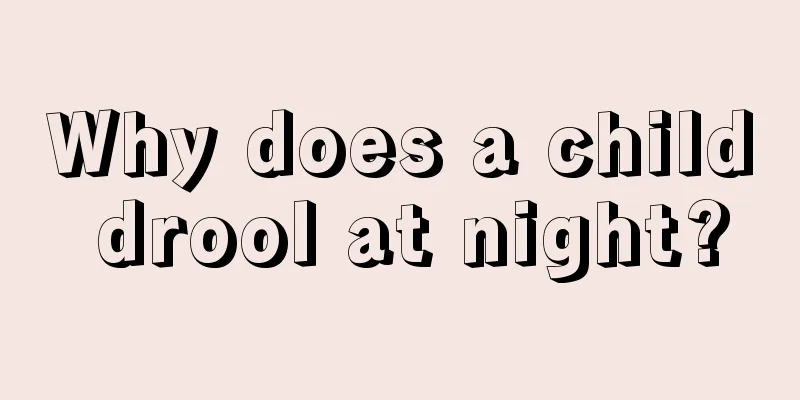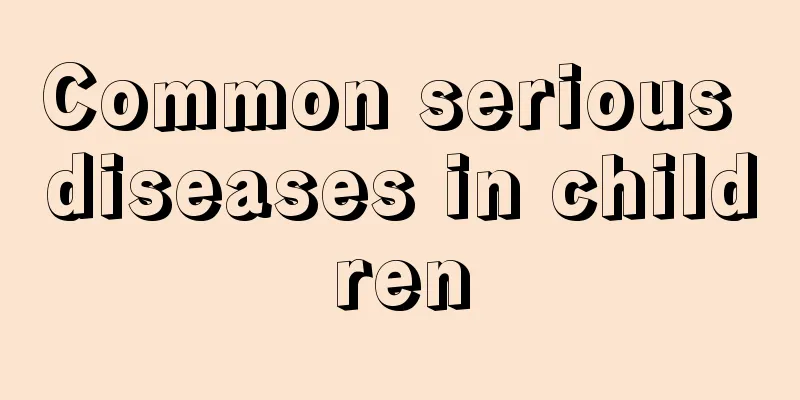Can I bathe my baby if he has a runny nose?

|
Young babies have weak constitutions and are often prone to cold symptoms, among which runny nose is a common symptom. Babies need to take a bath every day because their bodies need a bath every day to keep them clean. However, when the baby has a runny nose, many parents will have questions, thinking that the baby may have a cold if he has a runny nose. If you catch a cold while taking a bath, it will easily aggravate your condition. So can the baby take a bath when he has a runny nose? If your baby has a cold and a runny nose, you can give him a bath, but make sure he keeps warm. To treat a cold, good rest is crucial. Try to let your child sleep more and reduce outdoor activities appropriately. Appropriate amount of games can distract your baby and make them no longer pay attention to physical discomfort, but remember that the first priority is not to make your baby tired. If your baby has a stuffy nose when sleeping, you can put one or two towels under the child's mattress and slightly raise the head to relieve the stuffy nose. 5 situations in which you should not bathe your baby 1. It is not advisable to bathe your baby when he is sleepy The mental state of your baby is also very important when bathing him/her. It is best to do it when he/she is in high spirits. If your baby is very sleepy, you should meet his sleep needs as soon as possible and wait until he wakes up before washing him. 2. It is not advisable to take a bath when you are suffering from a serious illness Do not bathe your baby when he is unwell due to diarrhea, vomiting, pneumonia or other diseases. Bathing is an activity that consumes physical energy. Sick babies are already lacking energy. The warm water during bathing will dilate capillaries throughout the body, making them more susceptible to hypoxia and collapse, so it should be avoided. 3. It is not advisable to bathe the baby when the skin is damaged When the baby has skin injuries such as boils, burns, etc., bathing will cause the damaged skin to be contaminated, so it is best to wait until it heals before bathing. At this time, the baby can choose to wipe the body locally. 4. It is best not to take a bath right after getting a vaccination First of all, since the vaccine is a foreign body stimulus to the human body, the day after vaccination is the peak period of vaccination reaction. Local redness, swelling, heat and pain may occur at the injection site. Some babies will also have high fever or low fever reaction. Some babies will also experience irritability, loss of appetite, and physical fatigue. If you bathe your baby at this time, it may aggravate the child's discomfort. Therefore, it is generally not recommended to bathe your child on the day after vaccination. If no abnormal reaction occurs on the day and the child behaves normally the next day, you can bathe the child with confidence. 5. Don’t take a shower immediately after sweating profusely after exercise Babies have a fast metabolism and tend to sweat after exercise. When they sweat profusely, it is actually the process of the body releasing heat. At this time, the baby's sweat glands and capillaries are open. If the water is cold when bathing your baby at this time, it will easily cause capillary contraction and cause a cold; if you take a hot bath, it will accelerate the flow of blood to the skin and muscles, resulting in insufficient blood supply to the brain and heart, causing dizziness and physical discomfort. It is best to wipe off the sweat or change the wet clothes first, and wait until the sweat on the whole body is dry and the body temperature and heart rate return to normal before washing (adults should also pay attention to this). |
<<: Is it harmful for children to wash their noses?
>>: What causes children's eye bags to swell
Recommend
What is the cause of the child's dark yellow skin?
Normal babies should be fair and plump, because c...
How to adjust the baby's sleeping head shape
Generally speaking, the decisive period of a pers...
What’s going on with the white spots on my 4-year-old baby’s face?
Children around four years old generally have rel...
A brief introduction to the diet for seven-month-old babies
A baby is a new member of a family and the fruit ...
What should I do if my child has a high fever?
Parents are naturally worried when their children...
What to do if your child pouts
Pouting eyes mostly occurs in adults, but what sh...
Causes of bleeding gums in children
Bleeding gums can occur in both children and adul...
How to determine whether eczema is caused by milk powder
When babies are born, they are not very adaptable...
How to treat hot hands and feet in babies
When the baby's hands and feet are hot, paren...
What to do if a three-year-old child has athlete's foot
Athlete's foot is a disease that not only occ...
What causes vaginal itching in children?
Children are more prone to inflammation because o...
Root canal treatment for children with tooth decay
Children with more serious tooth decay can be tre...
Childhood obesity is harmful: Five strategies to prevent it
Due to lack of sufficient nutritional knowledge, ...
How to deal with milk allergy in newborns
In life, newborns have all kinds of problems, and...
What can children eat to strengthen their spleen and stomach?
Many children don't like to eat much due to s...









